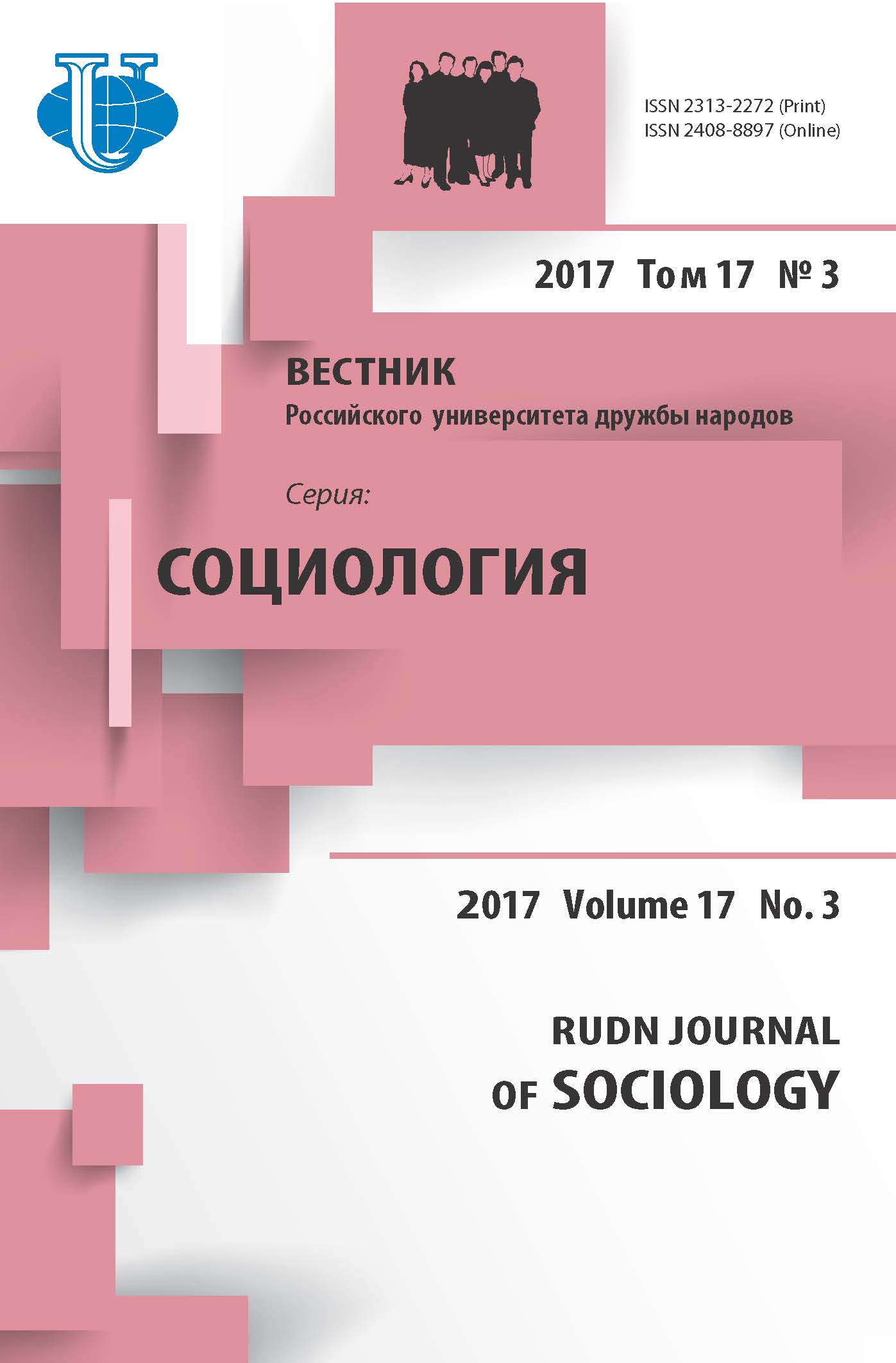NEIGHBORING COUNTRIES’ IMAGES: PERSISTENT STEREOTYPES OF THE RUSSIAN STUDENT YOUTH
- Authors: Narbut NP1, Trotsuk IV1
-
Affiliations:
- RUDN University (Peoples’ Friendship University of Russia)
- Issue: Vol 17, No 3 (2017)
- Pages: 338-347
- Section: Surveys, experiments, case studies
- URL: https://journals.rudn.ru/sociology/article/view/16806
- DOI: https://doi.org/10.22363/2313-2272-2017-17-3-338-347
Cite item
Full Text
Abstract
The article presents the results of the comparative study of the neighboring countries’ images in the perception of the Russian student youth. In the first part of the article, the authors emphasize the importance of public opinion as one of the key social institutions in the contemporary society though it is often manipulated by state and political organizations to ensure the public support of ambiguous decisions. There are two basic mechanisms to form social representations including the images of different countries in public opinion: spontaneous and purposeful (when officials and media use special techniques to create an image of either a dangerous enemy or the best geopolitical friend). Today in Russia the former seems to dominate for except the key geopolitical powers other countries seem to attract the state attention rather sporadically, which is supported by general political indifference, wide dissemination of information tech-nologies, and freedom of travels all over the world, etc. The second part of the article focuses on the methodological consequences of thus developing images in the Russian public opinion. The authors explain the thematic structure and techniques of the questionnaire developed for the study of the images of China, Kazakhstan and Serbia in the Russian student youth’ worldview, which were applied in the sociological survey of 2010-2011 in the project supported by the Russian Foundation for Humanities, and then again in 2016 for the comparative analysis. The last part of the article presents the results of these surveys in the comparative perspective and focuses on a few indicators to reconstruct the persistent stereotypic elements of the neighboring countries’ images in the student youth worldview though there are some changes that are difficult to interpret.
About the authors
N P Narbut
RUDN University (Peoples’ Friendship University of Russia)
Email: narbut_np@rudn.university
Miklukho-Maklaya St., 6, Moscow, Russia, 117198
I V Trotsuk
RUDN University (Peoples’ Friendship University of Russia)
Email: trotsuk_iv@rudn.university
Miklukho-Maklaya St., 6, Moscow, Russia, 117198
References
- Allardt E. Challenges for comparative social research. Acta Sociologica. 1990;33(183).
- Hoffmeyer-Zlotnik J.H.P. Harmonisation of demographic and socio-economic variables in crossnational survey research. Bulletin de Méthodologie Sociologique. 2008;98 (5).
- Khizrieva A.G., de Munck V.C., Bondarenko D.M. The Moscow School of quantitative crosscultural research. Cross-Cultural Research. 2003;37(5).
- Kolosov V. ‘Nizkaja’ i ‘vysokaja’ geopolitika [‘Low’ and ‘high’ geopolitics]. http://bd.fom.ru/ report/map/oz02061904 (In Russ.).
- Lippmann W. Obshhestvennoe mnenie [Public Opinion]. Per. s angl. T.V. Barchunovoj. Moscow; 2004 (In Russ.).
- Lukin A.V. Medved' nabljudaet za drakonom. Obraz Kitaja v Rossii v XVII-XXI vekah [The Bear Watches the Dragon. The Image of China in Russia in XVII-XXI Centuries]. Moscow; 2007 (In Russ.).
- Mills M., van de Bunt G.G., de Bruijn J. Comparative research: Persistent problems and promising solutions. International Sociology. 2006;21.
- Mjasnikov V.S. Ob obraze Kitaja v Rossii [The image of China in Russia]. http://magazeta.com/ columns//glevfedorov/2007/06/10/myasnikov (In Russ.).
- Narbut N.P., Trotsuk I.V. Obrazy stran-sosedej v vosprijatii studencheskoj molodezhi (po rezul'tatam sociologicheskih issledovanij) [Images of neighboring countries in the perception of students (results of sociological studies)]. RUDN Journal of Sociology. 2011;4 (In Russ.).
- Noelle-Nuemann E. Obshhestvennoe mnenie. Otkrytie spirali molchanija [The Spiral of Silence: Public Opinion]. Moscow; 1996 (In Russ.).
- Scheuch E.K. Society as context in cross-cultural comparisons. Social Science Information. 1967;6(7).
- Trotsuk I.V. Obraz Serbii v rossijskom obshhestve: rezul'taty oprosa moskovskogo studenchestva [The image of Serbia in Russian society: Results of the Moscow students survey]. RUDN Journal of Sociology. 2012;3 (In Russ.).














